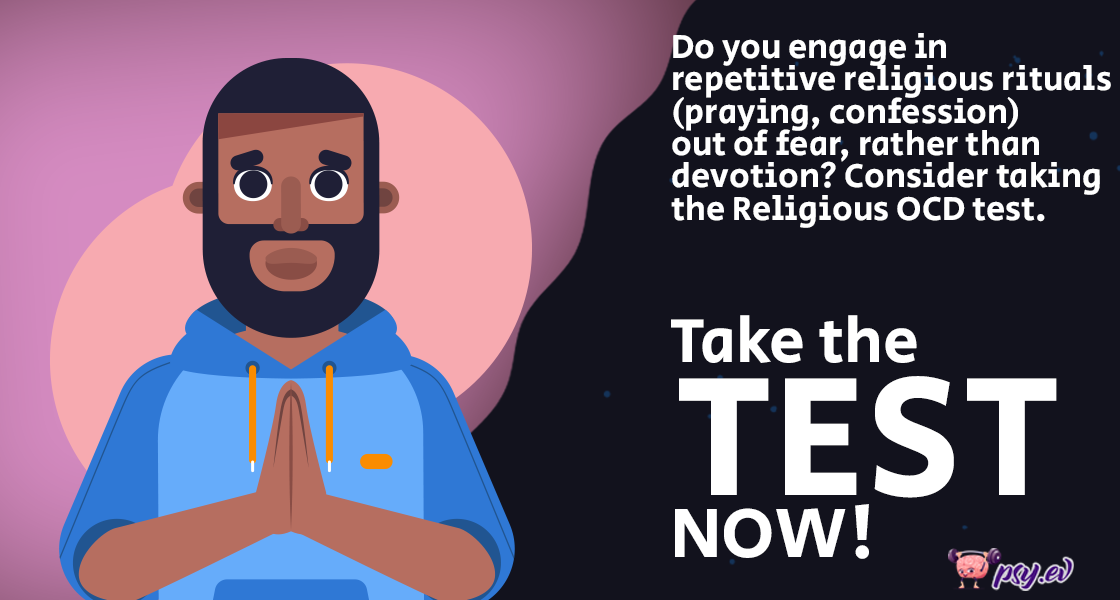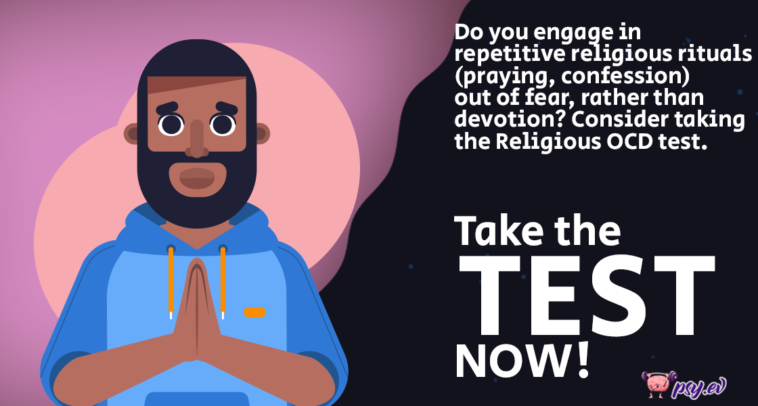Through this religious OCD test, people can better understand their own experiences, see trends connected to religion, and find the right kind of assistance or therapy. Furthermore, this test can also provide you with information that can help you prepare for a counseling session.
After getting the result you can speak with a religious OCD-focused therapist or a member of the religious group you belong to. Take the religious OCD test below for free.
Religious OCD: Causes and Signs
Religious OCD builds on your religious experience. It may make you feel worn out, doubtful, depleted spiritually, and guilty. Some people have made the decision of claiming to be atheist or nonreligious in an effort to get away from the unpleasant sentiments of scrupulosity. Religious OCD may involve any faith. In actuality, religious OCD may affect people of all faith backgrounds.
The cause of religious OCD is not fully understood. However, some studies state that the causes of religious OCD can be linked to an imbalance in the chemical messengers in the brain. Moreover, other causes include genetic and environmental influences.
Those who suffer from religious OCD frequently have unfavorable ideas about their own spirituality. When a person has religious OCD, they frequently develop obsessive thoughts and start asking "What if" scenarios such as “What if God is real?” and “What if there is no heaven or hell?” are some of the questions they think about.
Furthermore, a picture, concept, location, person, or sentiment might operate as a trigger for religious OCD. Most people with religious OCD adhere to moral, ethical, and religious perfectionist standards. They could feel readily judged by what other people might view as the most basic rules or principles.
A person with religious OCD displays signs of anxiety and depression in addition to experiencing intense guilt for having unholy thoughts and behaviors. In general, avoidance behaviors, mental compulsions, overt behavioral compulsions, and reassurance-seeking behaviors are the categories of religious OCD.
Next Step
Religious OCD, like many other types of OCD, is frequently accompanied by intense worries about spiritual immorality and the potential repercussions. The disorder results in intrusive thoughts or behaviors intended to assist a person in controlling these worries.
The next step is to seek treatment for religious OCD. It is important to seek assistance if the result shows that you or someone you know is showing signs of religious OCD. On the other hand, you can also get help from religious leaders or talk to a mental health professional to help treat your religious OCD symptoms directly.
The first-line treatment for OCD is often exposure and response prevention (ERP). While keeping patients from engaging in obsessive behaviors, this kind of therapy exposes the patient to the circumstances that set them off.
On the other hand, CBT is a type of therapy that has been highly successful in treating OCD and many other mental health issues. It focuses on helping people recognize, understand, and steer clear of toxic beliefs.
You can also opt for family counseling which can be beneficial if a family is affected by religious OCD. Couples counseling may also be recommended for those whose relationships are harmed by religious OCD. With this kind of treatment, patients learn how to control their undesirable ideas and behaviors successfully.


